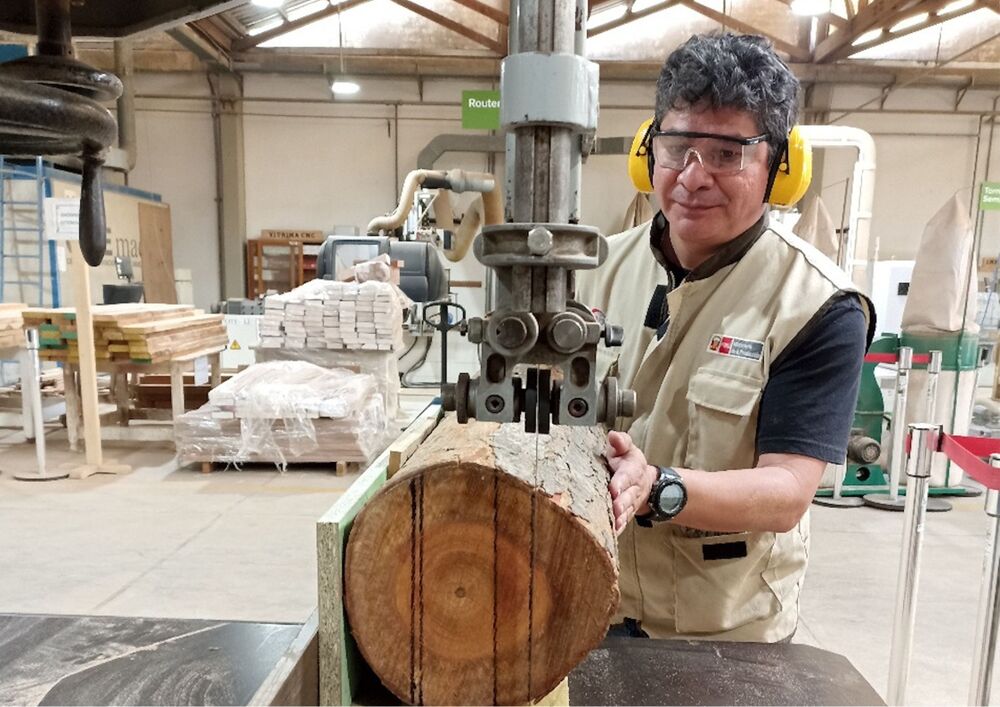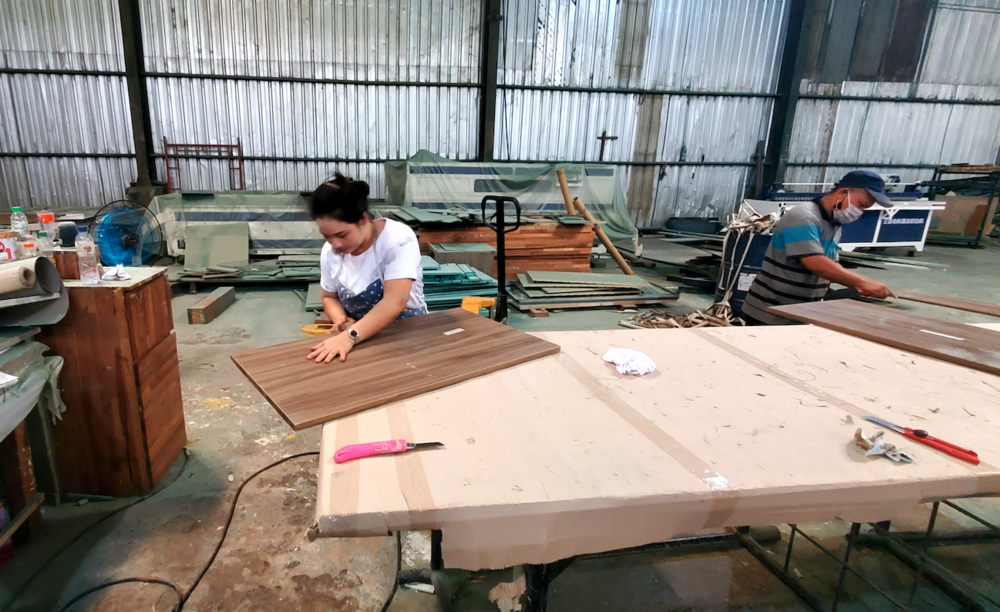Investment and sustainable forest management key to innovation for tropical timber producers
24 July 2025, Yokohama
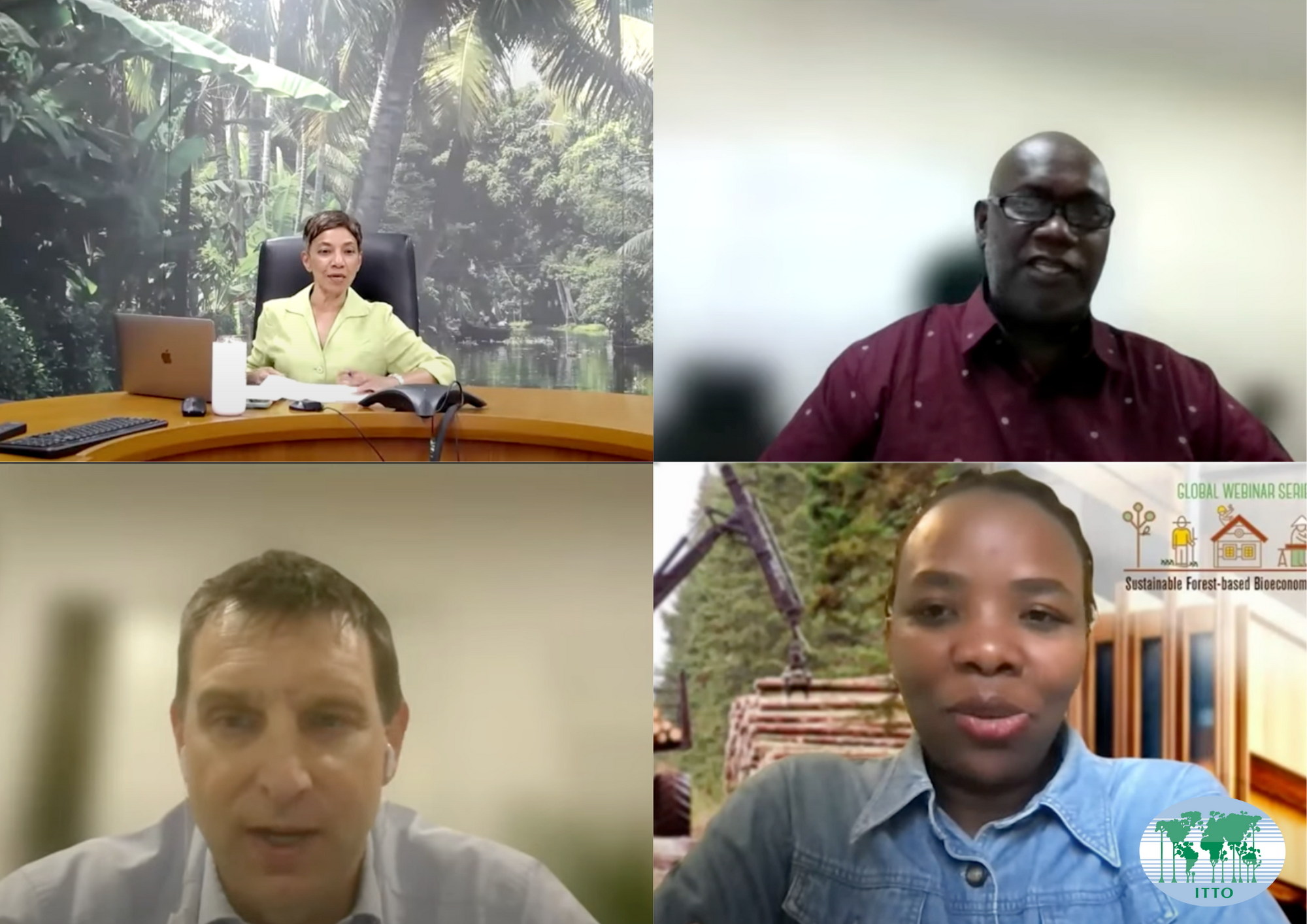
Panelists including the ITTO Executive Director speak at an FAO webinar on July 10, 2025.
Many of ITTO’s 37 tropical timber producing member countries have adopted innovative tools and mechanisms, but at varying levels. There is a lot of opportunity for growth. These were some key takeaways from ITTO Executive Director Sheam Satkuru’s participation during a recent webinar hosted by the Food and Agriculture Organization of the United Nations (FAO). Ms Satkuru emphasized that adoption of innovation depends on affordability and the capacity of producing countries.
“Innovation never comes free, unfortunately,” said the ITTO Executive Director as she asserted that ensuring innovation in achieving bioeconomy starts with the implementation of sustainable forest management (SFM).
Ms Satkuru contributed to a panel discussion during the webinar on 26 June 2025, the third in a series organized by FAO focused on sustainable forest-based bioeconomy approaches. The panel discussed how innovation, technological improvements, sustainable production, and youth participation could advance forest-based bioeconomy solutions to ensure that resource supply meets growing demand.
Investment to foster innovation
The ITTO Executive Director outlined the major needs of producing countries to adopt innovative tools and technologies, including capacity building, training, and access to sustainable finance. Significant investment, along with fiscal and non-fiscal incentives, is crucial, she added.
Ms Satkuru said that governments of tropical countries also need to pitch in and invest in their own forest resources. She noted that many have already invested in the forestry sector because they recognize the importance of these resources—not just for the country, but also for their people.
Managing growing demand for timber and other non-timber forest-based products without compromising future resources requires innovation across the entire forest product supply chain. ITTO's dual mandate of promoting SFM in its member countries and diversifying international trade in legal and sustainable forest products places it at the forefront of efforts to adopt and implement innovative mechanisms for managing tropical forest resources.
A key aspect of SFM is legal and sustainable supply chains. According to Ms Satkuru, “many in tropical countries need to commit to mainstreaming legal and sustainable supply chains for tropical wood products, and also adopt and adapt to sustainable production, consumption, and trade.”
Legal and forest policy reforms are another avenue which ITTO advocates for as a catalyst for the implementation of SFM.
Ms Satkuru pointed to examples of producing countries utilizing new diagnostic tools and technologies.
She referenced the creation of a smartphone application developed with ITTO support which improves the efficiency of timber tracking and allows for greater traceability in the forest production chain in Guatemala. Users photograph a block of logs or other wood products and the app, called Cubicación de Productos Forestales (CUBIFOR), generates a report with the resultant scale volumes.
The CUBIFOR system, and other traceability innovations developed with ITTO support are examples of technologies which can be replicated in other producing countries to improve efficiency, forest management, and expand trade in and from tropical timber products. Other promising areas of innovation potential referenced by Ms Satkuru are GIS and remote-sensing technologies.
CUBIFOR was featured as a case study in FAO’s flagship publication, The State of the World’s Forests 2024: Forest-sector innovation towards a more sustainable future.
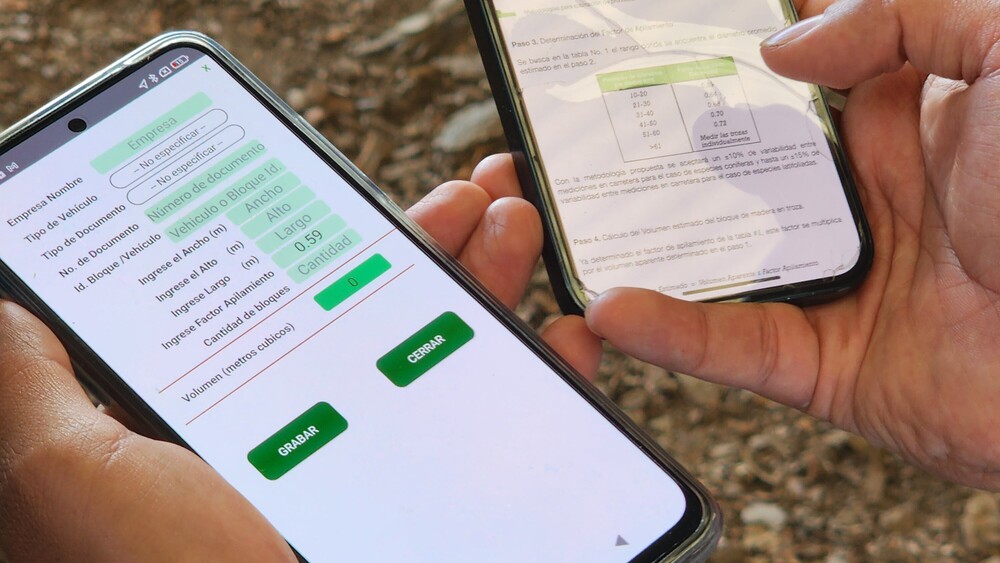
Skills, partnerships, and policy alignment
During the webinar, speakers from New Zealand, Solomon Islands, and the International Forestry Students Association echoed the need for enabling environments that encourage investment and innovation. Capacity building, inclusive policies, and adoption of advanced technologies are all necessary to scale up forest-based bioeconomy solutions.
Vaeno Vigulu, Dean of Solomon Islands National University, shared insights from his experience in government and industry on key enablers for the growth and sustainability of the Solomon Islands’ forestry sector. Training and capacity building are crucial, with universities playing an essential role in producing skilled graduates and equipping smallholders with the knowledge to meet international standards.
Mr Vigulu described how innovations via high-quality domestic processing and value-added production simultaneously created employment opportunities and addressed environmental concerns. He called for collaboration between smallholders, the private sector, and donors to share best practices, provide easier access to financing, and grow export markets for value-added products. Mr Vigulu detailed how government and international organizations such as ITTO play an important role in developing and enforcing effective policies and regulations.
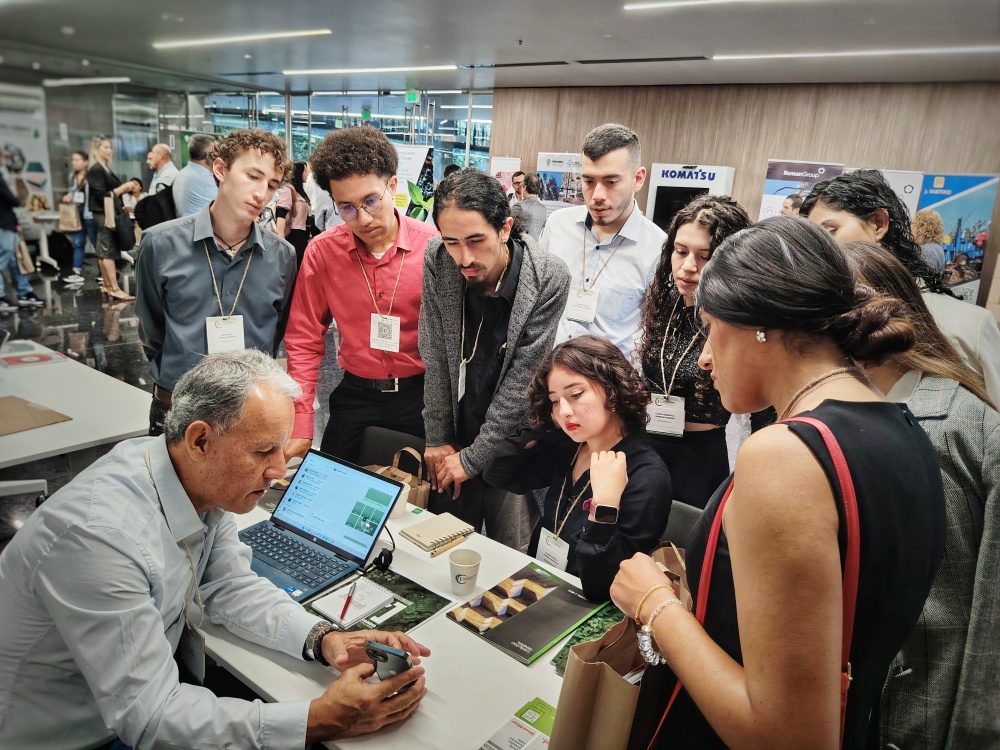
Inclusion and the role of youth
Ms Satkuru and the expert panel called for greater inclusion of youth, women, and Indigenous communities in shaping the future of the forest-based bioeconomy.
Ngozi Peace Edum, representing the International Forestry Students Association, advocated for greater support to young professionals via research funding, mentorship, and platforms to pitch innovative ideas.
She discussed the value of inclusive forest-based bioeconomy research that addresses community problems and bridges the gap between the needs of different regions around the world.
ITTO has long supported youth-driven innovation through its Fellowship Programme, which has enabled more than 1,400 young and mid-career professionals to pursue career development and improve professional prospects.
Transformative tools for forest-based bioeconomy
Florian Graichen, Chief Operating Officer at Scion New Zealand, provided insight into how emerging technologies can drive the development of the forest-based bioeconomy. He highlighted artificial intelligence (AI) and advanced processing technologies as accelerators with high potential.
Mr Graichen advocated for the adoption of AI for a variety of forestry processes including forest monitoring, carbon accounting, the development of renewable materials, and land management. He emphasized that the future of forest management will depend on cutting-edge tools that enable efficient data integration and modelling.
Next steps for sustainable forest management
As discussions continue and new technological innovations emerge, Ms Satkuru stressed the need for a unified effort to drive forward a sustainable forest-based economy. This includes establishing shared definitions, coordinating communication strategies, and encouraging the adoption of innovations that equip producing countries and communities with the tools they need to thrive.
Collaboration between producing and consuming countries is vital to building a global tropical timber supply chain based upon SFM and advancing the UN Sustainable Development Goals while supporting socioeconomic needs.
Ms Satkuru emphasized the importance of recognizing the uses of lesser-known timber species to reduce pressure on commercial species, supporting plantation forestry as a supplement to natural forests, and prioritizing coordination of globally adaptable and acceptable supply chains, as core principles of ongoing forest-based bioeconomy approaches.
Watch the full webinar:
